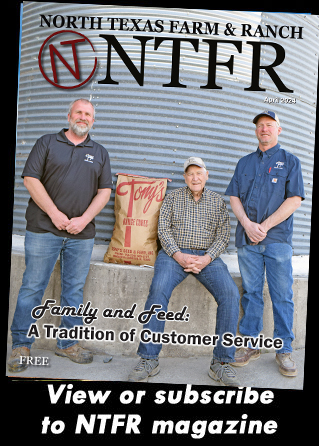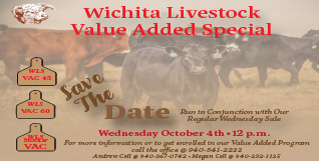Farm & Ranch
[AgriLife Today] North Texas Farm-to-Table program brings local producers, buyers together
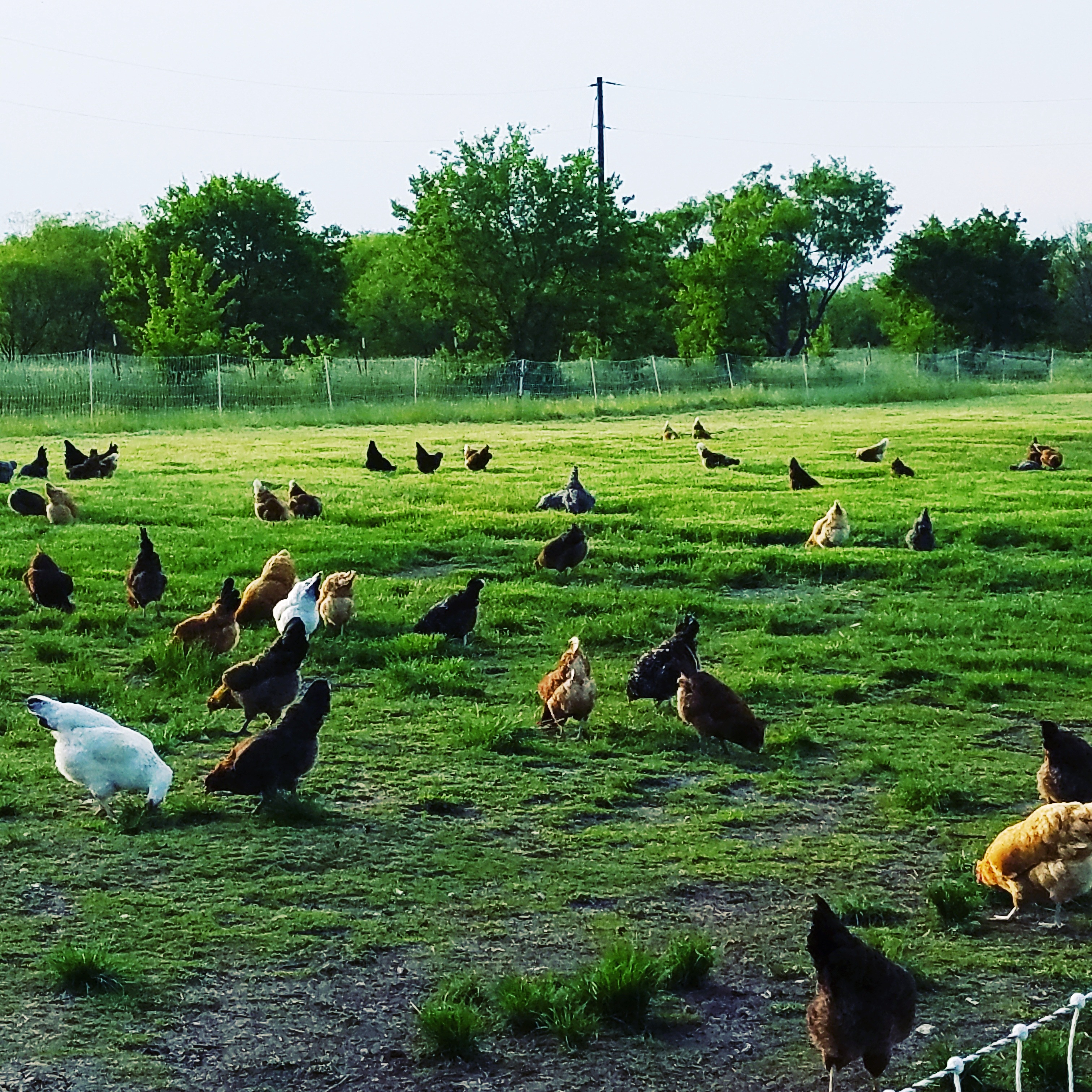
By: Paul Schattenberg
By: Paul Schattenberg, 210-859-5752, [email protected]
Contacts: Dr. Greg Church, 972-548-4232, [email protected]
Dr. Rick Maxwell, 903-737-2443, [email protected]
McKINNEY – The North Texas Farm-to-Table program provides opportunities for local agricultural producers to meet with area restaurateurs, chefs and others, understand their needs and provide them with fresh, high-quality locally grown agricultural items, program coordinators said.
The North Texas Farm-to-Table events bring local producers together with restaurateurs, chefs and other buyers. (Texas A&M AgriLife Extension service photo)
“North Texas Farm-to-Table was designed to bring together local ag producers and local buyers,” said Dr. Greg Church, Texas A&M AgriLife Extension Service agent for horticulture, Collin County. “Our events allow producers and buyers to meet in a relaxed environment where the producers can learn about buyers’ needs. It also helps producers expand the marketability of their products and encourages them to be more successful.”
Church and other AgriLife Extension personnel are in their second full year of promoting the program. To date, they have presented five Farm-to-Table symposiums in North Texas.
“We held three Farm-to-Table programs in 2015 and from 70-100 people attended each of them,” said Dr. Rick Maxwell, AgriLife Extension agent for agricultural and natural resources, Lamar County. “Some of the agricultural products discussed at these programs include various types of garden vegetables, herbs, grass-fed beef, chickens and eggs.”
Maxwell said one area producer was interested in providing ducks for local restaurants.
That producer, Mark Page, owner of Circle 15 Farms, a 5-acre farm near Gunter, said he and local restaurateur Rick Wells, owner of Rick’s Chophouse and Harvest Seasonal Kitchen restaurants in downtown McKinney, met at a Farm-to-Table event.
“That’s when we started to wonder if we couldn’t raise ducks,” Page said. “We had already been raising chickens for eggs, but thought we should try a batch of ducks,” Page said. “That first batch worked out, so we raised and sold several more. Now we sell duck meat to four different restaurants in the area.”
Page said he has now expanded into raising guinea fowl for sale to local restaurants.
“Currently, we have about 100 ducks for producing duck meat and 31 ducks for duck eggs, as well as 275 chickens from which we get a daily egg supply,” he said. “We also have about 24 guinea fowl and are thinking about adding geese to have ready for sale to restaurants this winter.”
Page said without the program and the opportunity to meet Wells, he would not have known about the need and marketability for the types of poultry he now produces.
Wells has been a driving force behind North Texas Farm-to-Table efforts, Church noted.
“Rick actually initiated the original meeting where we talked about putting local producers and potential buyers together,” Church said. “He was very excited about the prospect of having a venue where they could meet and discuss how they might benefit one another.”
Wells, who closed a successful Italian restaurant in downtown McKinney in order to open Harvest as a showcase for locally grown foods, said for him, giving back to the community is more than a business practice, it is a philosophy.
“This is more than a matter of local producers providing local businesses with agricultural products,” he said. “I feel if you do business in a community, you are responsible for doing all you can to support that community.”
He added that he also wanted to “test the waters” to see if his community would support a restaurant focused on locally grown foods. He noted that locally grown foods were fresher and “created less of a carbon footprint” than those needing to be harvested and shipped from out of state.
“Supporting local farms and ranches also creates a ripple effect that has an impact on the entire community,” he said.
Wells, who also owns a farming operation, Waterboy Farms, said he supports more than 75 agricultural operations in the area and tries to ensure all or most of his menu items consist of ingredients acquired from no farther than 50 miles away.
Harvest Seasonal Restaurant in downtown McKinney purchases a variety of agricultural items — from grass-fed beef to vegetables and honey — from more than 75 area farms and ranches. (Texas A&M AgriLife Extension Service photo)
Throughout the restaurant, from the doors and tables to the photos on the walls, display shelves and food and drink menus, there are examples of the work of local craftsmen, artisans and agricultural producers. Some of the local agricultural items used by the restaurant include duck, available seasonally, grass-fed beef, goat’s milk and cheese, artisanal meats and cheeses, chicken, eggs, pecans, various garden vegetables, fruits and honey.
“We’re always experimenting with new dishes and drinks that incorporate ingredients we can obtain locally,” Wells explained. “We’re even thinking about growing our own hops at Waterboy so we can use them to make our own beer using local ingredients.”
The success of Wells’ approach was further validated when Harvest was named one of the best new restaurants of 2014 and 2015 by D Magazine, which also singled out executive chef Andrea Shackelford as “the young chef driving a farm-to-table menu on which almost all of the meat and three-quarters of the produce are local, and the list of beer, wine and whiskey leans Texas.”
Shackelford, who said she has an appreciation for agricultural producers, has also gone through AgriLife Extension’s Master Gardener program in Collin County to learn even more about horticulture, especially the ins and outs of vegetable and fruit production. Additionally, beverage manager Brent Tyler is taking classes in conjunction with AgriLife Extension so he can become a Master Naturalist.
Wells said he owes a great deal to the AgriLife Extension office in Collin County, not only for Farm-to-Table efforts but also for providing expertise to help him determine what crops to plant at Waterboy Farms, helping with his irrigation and for other assistance.
“The local AgriLife Extension office has been incredible,” he said. “If it wasn’t for them partnering with me, I’d be a year behind where I am now.”
Maxwell said AgriLife Extension will also continue to support the program by providing information and assistance to area producers.
“We can help those wanting to provide agricultural products for local consumption by doing what we do best – educating them on how they can produce the best possible product,” he said. “That includes providing programs, instruction and technical assistance to help them to be more successful in their agricultural operations.”
-30-
Find more stories, photos, videos and audio at http://today.agrilife.org
Farm & Ranch
Hazards of Backyard Poultry
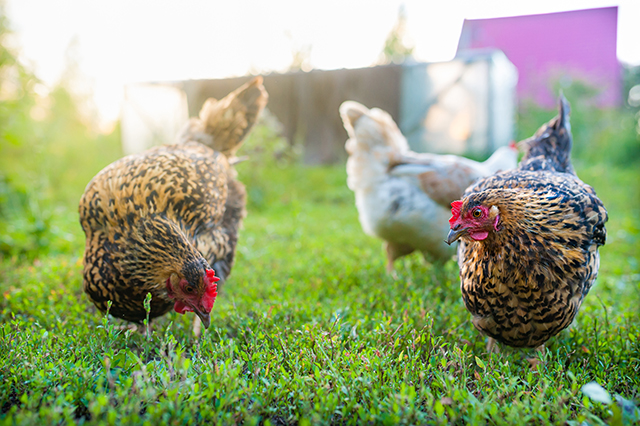
By Barry Whitworth, DVM
Having backyard poultry is a popular agriculture enterprise. According to the United States Department of Agriculture, 0.8 percent of all households in the United States have chickens. People keep chickens for a variety of reasons with table eggs being one of the more common reasons.
Unfortunately, some of these poultry producers are not aware of the hazards that come with keeping poultry because many times they carry pathogens but appear healthy.
Chickens are carriers of several zoonotic diseases. These are diseases that can be passed from animals to humans. According to a recent survey in Pennsylvania, a majority of backyard poultry producers were aware of the dangers of avian influenza. However, this study also revealed that far fewer producers were aware of the risk of possible exposure to Salmonella and Campylobacter.
The lack of knowledge about the hazards of raising poultry likely contributes to the continued issues of Salmonella outbreaks associated with backyard poultry. In 2023, the Centers for Disease Control and Prevention reported 1,072 illnesses of Salmonella linked to backyard poultry, and 272 of those patients required hospitalization. Oklahoma reported 43 individuals with the disease.
To read more, pick up a copy of the April issue of NTFR magazine. To subscribe by mail, call 940-872-5922.
Farm & Ranch
Ag Elsewhere: Wyoming
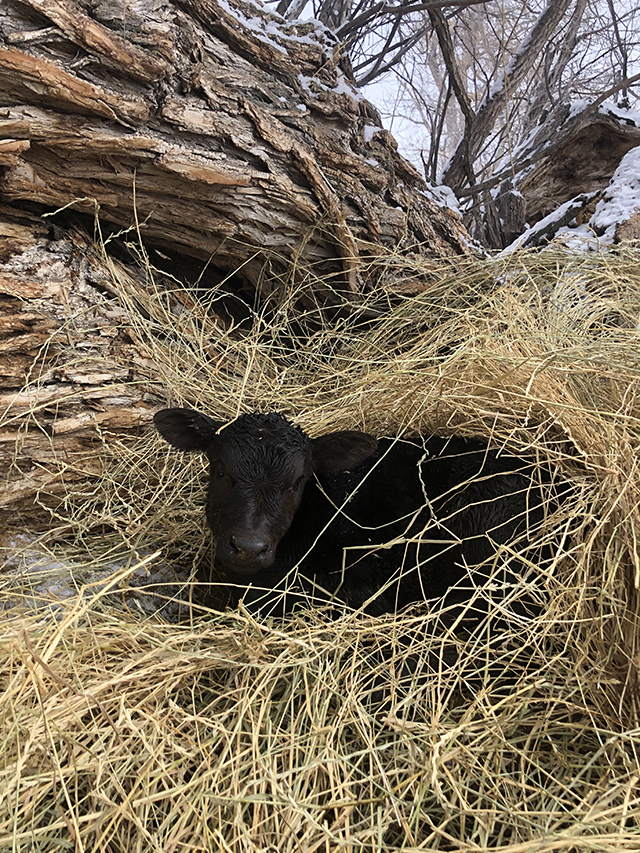
By Tressa Lawrence
Babies are tucked away in every nook and cranny. Many ranchers across Wyoming have baby animals popping up all over this time of year.
Farm & Ranch
Ag Elsewhere: Montana
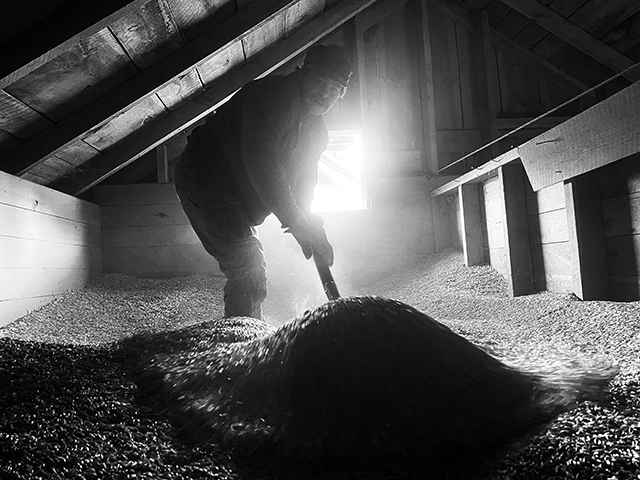
By Lindsey Monk
Another load of grain in to keep feeding the calves until the green grass can really start popping.
-

 Country Lifestyles1 year ago
Country Lifestyles1 year agoScott & Stacey Schumacher: A Growth Mindset
-

 Equine7 months ago
Equine7 months agoThe Will to Win
-

 Country Lifestyles7 years ago
Country Lifestyles7 years agoStyle Your Profile – What your style cowboy hat says about you and new trends in 2017
-

 Country Lifestyles4 years ago
Country Lifestyles4 years agoAmber Crawford, Breakaway Roper
-

 HOME7 years ago
HOME7 years agoGrazing North Texas – Wilman Lovegrass
-

 Country Lifestyles7 years ago
Country Lifestyles7 years agoDecember 2016 Profile, Rusty Riddle – The Riddle Way
-

 Country Lifestyles8 years ago
Country Lifestyles8 years agoJune 2016 Profile – The man behind the mic: Bob Tallman
-

 Outdoor9 years ago
Outdoor9 years agoButtercup or Primrose?



